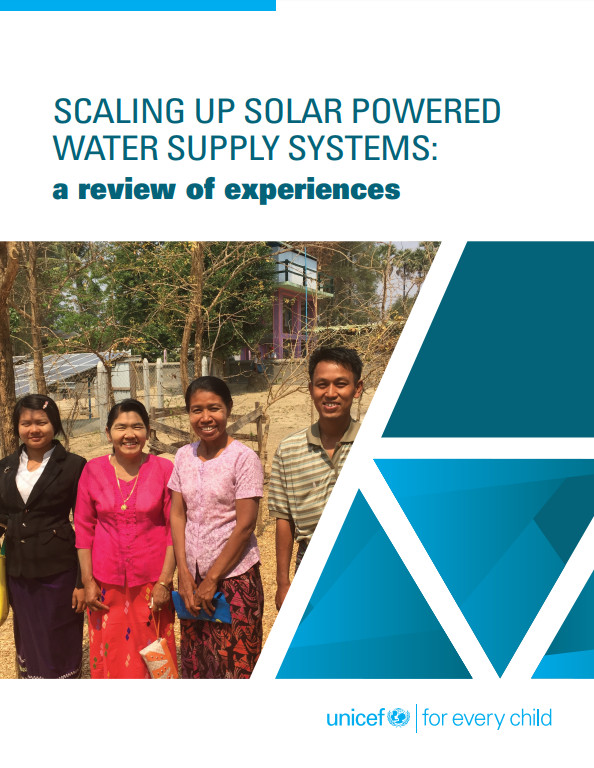Scaling up solar powered water supply systems: a review of experiences
 |
rapport Jan 2016 ; 28 pages
Aut. Emily Bamford & Djani Zadi
Ed. UNICEF - New York
Téléchargeable sous format: PdF
Téléchargeable chez l'éditeur
Abstract:
The Solar Powered Water System assessment was carried out in four countries; Nigeria, Mauritania, Uganda and Myanmar and was supported by a global UNICEF country office survey and literature review. The assessment aims to take stock of the progress made so far, particularly in terms of programming and the long-term sustainability of systems. It will also provide key lessons to consider when moving forward.
Overall, the assessment found that when correctly sited and dimensioned, solar powered water systems are a sustainable and effective method of providing safe water to communities. Low day-to-day running costs combined with long-term durability mean that solar powered systems are now becoming financially competitive, particularly in comparison to motorised systems. The systems can also provide an important water storage buffer for climate adaptation purposes and additionally help reduce the carbon footprint of the water sector.
Despite the successes, significant challenges remain, particularly in terms of sector professionalisation and the strengthening of local markets. Also, because the potential cost of repairs is higher than for other systems, it is vital that the collection and management of user fees is made both affordable and effective for all. If such improvements can be made, solar powered water schemes have a real potential to ensure safe and sustainable water access for millions of people globally.
Mot clef: |
Editeur/Diffuseur: |
|
UNICEF - New York - Etats Unis |
En cas de lien brisé, nous le mentionner à communication@pseau.org